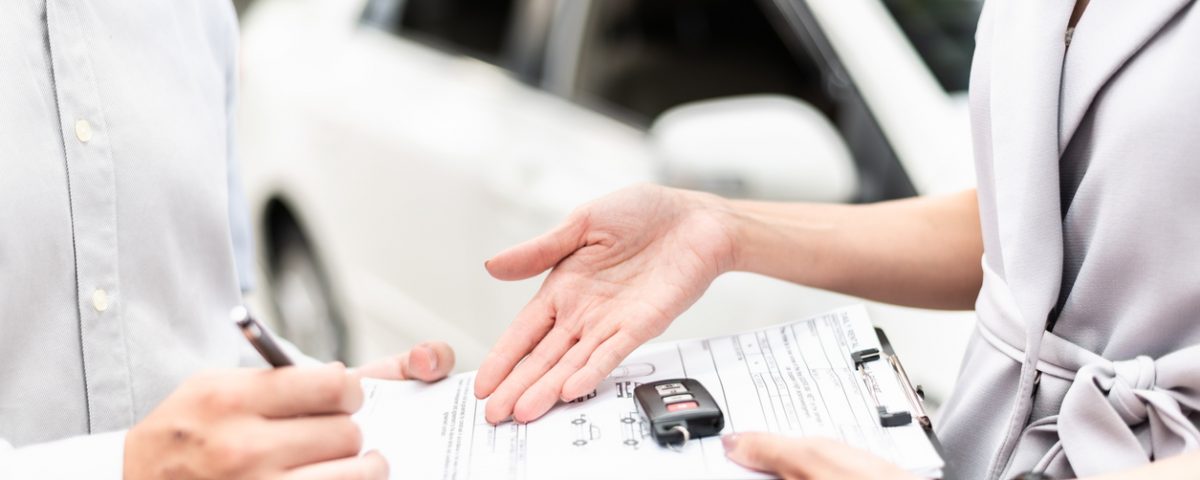5 Things to Know If You Have a Rental Car Accident in Florida

Road Trips in Florida: What You Need to Know
September 6, 2022
Top 10 Safety Tips You Should Know Before Traveling to Florida
January 11, 2023The U.S. has over 2 million rental cars, making it the largest rental car market in the world. And with over 1,000 rental car locations, Florida has the second highest number of rental vehicles in the nation.
Lots of rental cars means lots of opportunities for rental car accidents. Florida doesn’t specify the percentage of car accidents involving rental vehicles that occur in the state. Still, with 400,000 car accidents every year, it’s safe to guess that Florida probably sees several thousand rental car accidents annually.
With these statistics in mind, here are five things you should know if you’re involved in a rental car accident in Florida.
Renting a Car in Florida
Renting a car in Florida is similar to renting a car in every other market. First, you’ll need to reserve a vehicle, particularly in large rental car markets like Orlando and Fort Lauderdale. Rental agencies often run out of vehicles during busy travel times like weekends and holidays.
You’ll also probably need a credit card. Most rental companies do not accept cash, and very few take debit cards. Rental car companies have many reasons for this policy, including:
- You’re more likely to have good credit if you have a credit card
- They can put a hold on your card for the rental and fuel fees
- Credit cards can be charged for repairs
- A credit card cannot be overdrawn, although you might hit your credit limit
Along with your rental fee, the rental company will offer you a variety of insurance options. These might include:
- Collision damage waiver (CDW)
- Supplemental liability insurance
- Personal accident insurance
- Personal effects insurance
You’re not required to buy any of these insurance products from the rental company. You don’t even need to have personal car insurance to rent a car. Florida requires all car owners to meet minimum insurance requirements, and rental car companies provide this minimal coverage as the vehicle’s owner.
But this coverage does not necessarily protect you from the rental car company or someone injured in an accident you caused. You could be liable for all losses you caused, including property damage and injuries.
Things to Know If You Have a Florida Rental Car Accident
Even the most careful driver can have a car accident. If you have an accident while driving a rental car in Florida, keep these five things in mind:
1. Florida Follows No-Fault Auto Insurance Laws
Only 12 states have no-fault auto insurance laws, and Florida is one of them. The remaining 38 states have fault-based auto insurance laws.
In fault-based states, the at-fault driver’s insurance covers any damage they cause. The insurer pays claims to everyone injured by its policyholder until the claims hit the policy limits.
In no-fault states, each insurer pays for its policyholder’s injuries regardless of who caused the accident.
When you have a minor rental car accident with a Florida resident, their no-fault insurance will cover their injuries. As a result, you’ll avoid liability claims in all but the most serious accidents.
If you live in Florida and have no-fault insurance, your insurance will cover you while you’re driving your rental car. If you get injured, you can file a claim with your insurer for medical and disability benefits regardless of who was responsible for the accident.
If you don’t live in Florida and you have fault-based insurance from your home state, you don’t need to buy no-fault insurance to drive a rental car in Florida — you’ll rely on your personal auto policy. But your options depend on whether you caused the accident.
If you caused the accident, you would only receive benefits if you:
- Have optional medical payments (MedPay) coverage as part of your policy
- Bought optional personal accident coverage from the rental company
If you did not cause the accident, you could file a claim under your MedPay coverage or personal accident coverage. You can also file a liability claim against the driver who caused the accident.
The Rental Company’s CDW Does Not Cover Injuries
When you rent a car, the rental company uses high-pressure tactics to try to get you to buy insurance products. Rental companies often push the hardest on the CDW by trying to scare you into buying it.
But the CDW is not insurance. If you buy the CDW, you’re paying the rental company not to pursue you for its unreimbursed costs for damage to the vehicle. The CDW:
- Only protects you if you cause an accident
- Does not cover injuries to you, your passengers, or other drivers
- Might duplicate insurance coverage from your credit card issuer or your auto insurer
If you bought the CDW when you rented the car, don’t expect to file a claim if you got injured, and don’t expect the CDW to shield you from third-party injury claims.
Florida Law Requires You to Stop and Render Aid
After a traffic accident in Florida, you must stop and render aid to anyone injured. This includes pedestrians, bicyclists, motorcyclists, and other motorists injured in an accident. If you fail to stop, you’ve committed a hit-and-run.
You Must Call the Police After Most Crashes
Florida law requires you to report accidents to the police when they result in:
- Death
- Injury
- Property damage over $500
Because even the most minor damage could cost hundreds of dollars to repair, this means you must call the police after most rental car accidents in Florida.
You Can Buy Your Traffic Crash Report After Ten Days
When you report an accident, the police have ten days to complete the official traffic crash report. This report provides important information for sorting out liability after the crash. It includes:
- The names, addresses, and insurance information of everyone involved
- Names of witnesses
- A list of citations issued
- A narrative and diagram of what happened
You can get a copy of the traffic crash report from the Florida Department of Highway Safety and Motor Vehicles (FLHSMV) through its online portal after ten days by paying a small fee.
Avoiding Rental Car Accidents in Florida
The most common causes of car accidents in Florida include speeding, failing to yield, and distracted driving. By slowing down, exercising caution at intersections, and putting your phone away, you can substantially reduce your risk of getting in a rental car accident.
You may also be interested in:

